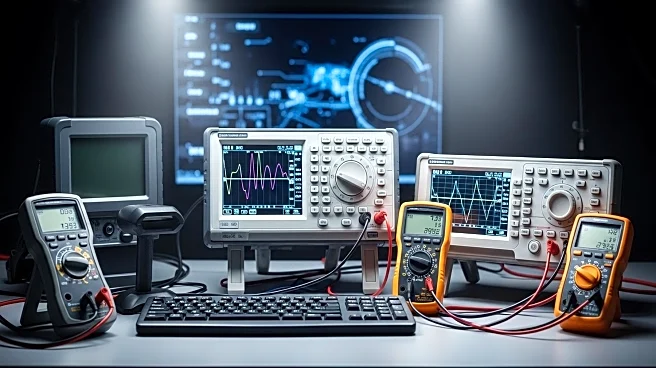What's Happening?
Mechanics and car enthusiasts are increasingly relying on online forums to diagnose complex car issues that are not easily resolved through traditional methods. Giovanni Greenidge, an auto enthusiast, highlighted this trend in a viral Facebook reel, showcasing the 'aha moment' when a solution is found in old forum posts. These forums, often overlooked, contain valuable information for diagnosing issues like battery drain and electrical problems. Mechanics use a combination of tools and online resources, including forums and technical bulletins, to identify and solve car problems, especially when standard diagnostic tools fail.
Why It's Important?
The reliance on online forums underscores the limitations of modern diagnostic tools and the importance of community knowledge in the automotive industry. As cars become more complex, traditional methods may not suffice, leading mechanics to seek solutions in less conventional places. This trend highlights the need for better indexing and accessibility of online resources, as well as the potential for generative AI to assist in diagnostics. The shift also reflects the growing importance of digital literacy among mechanics and the value of shared knowledge in solving intricate automotive issues.
What's Next?
As the automotive industry continues to evolve, there may be increased integration of AI and machine learning tools to assist in diagnostics. This could lead to more efficient problem-solving and reduce the reliance on outdated forums. Additionally, there may be efforts to improve the accessibility and searchability of these online resources, ensuring that valuable information is not lost. The industry might also see a push towards better training for mechanics in digital tools and resources, enhancing their ability to diagnose and repair modern vehicles.
Beyond the Headlines
The use of online forums for car diagnostics raises questions about the reliability and accuracy of information found in these spaces. Ethical considerations regarding the sharing and use of potentially incorrect or outdated information may arise. Furthermore, the cultural shift towards digital problem-solving reflects broader changes in how industries adapt to technological advancements, emphasizing the need for continuous learning and adaptation.









